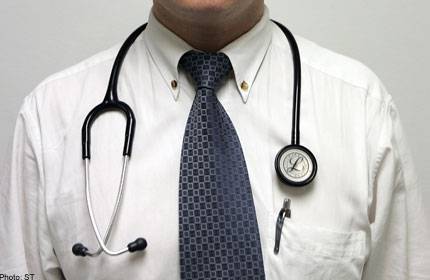
By Funmilola Afolabi
Over the years, most people have increasingly relied on social media to seek and share health information irrespective of age, gender, and nationality. The reliance has been facilitated by factors like health organisations and professionals also leveraging these platforms to share health-related information. Most of the shared information usually centres around health tips, prevention of some diseases and Covid-19.
It can be argued that these platforms have proved useful to the health sector, but it is pertinent to note that some outlets are breeding spots for social and health risks.
According to the World Economic Forum, new research suggested that Covid-19 has made people more health-conscious and willing to change their lifestyles. Therefore, they go online and look for tips. However, they end up becoming victims of false information.
Doctors of falsehoods
An investigation on Facebook showed the existence of some groups owned by supposed medical practitioners with medical knowledge and remedy tips which are shared with unsuspecting members of the public. For instance, Aramide Health Tips, a Facebook group run by Aramide Olayemi Olaleye has 138.8k followers with an average of 10 posts per day. The page which was created on 27 January 2019 is touted to ‘give vital information on health and good wellbeing’.
The investigation looked into some of the posts made and debunked any misinformation.
Claim 1: A post on the group claims that the combination of guava and soursop leaf tea leaves is good for cleaning the uterus, ovarian cyst, fallopian tube, tumours and cancer, and low sperm count among others.
Verdict: The claim is false. Medical practitioners note that guava and soursop infusions won’t remove ovarian cysts, clear fallopian tubes, and increase sperm count.
Claim 2: Another post claims that cabbage Juice is a popular natural ulcer remedy with proven records. It advises readers to blend, squeeze and drink at least four glasses of the juice weekly.
Verdict: Medical experts confirmed that there is no sufficient evidence to prove that cabbage juice cures ulcers.
Claim 3: A post on the benefits of okra for skin, hair, and health (lady’s finger) claims that Okra is a good filler food, that not only curbs hunger but keeps one from tiring, too. It adds that okra is one of the best and super filling Nigerian vegetables to consider if trying to lose weight.
Verdict: While, okra is rich in manganese, a mineral vital for metabolism and blood sugar regulation. It’s also high in vitamin C, which acts as an antioxidant and plays a central role in immune function. However, medical experts note it is not yet clear which of these micronutrients is found in okra water, as well as the specific amounts that okra water contains. Therefore, there is no sufficient evidence to prove that okra is good for weight loss.
Claim 4: Another post on ‘how to use grapefruit to lower high blood pressure’ opines that grapefruit has been found to reduce the effects of these conditions, especially if one has high blood pressure, high cholesterol, or high triglycerides.
Verdict: Grapefruit is heart-healthy, but it can’t clear all plaque from arteries. Though research has shown that regularly eating grapefruit can reduce some of the risk factors associated with heart diseases, such as high blood pressure and cholesterol, experts have advised people to check with their doctor before eating grapefruit because it could tamper with some medications.
And as such the claim is false.
Claim 5: A post prescribes pawpaw as a treatment for ulcer. The post explains how to infuse unripe pawpaw fruit in water for four days before drinking
Verdict: There is no scientific evidence that pawpaw-infused water can cure ulcers. Medical experts state that such remedies won’t work, rather advising affected persons to go to the hospital and follow treatment recommended by a doctor.
Faida Babale
Another page discovered during the investigation is Faida Babale, created on 16 April 2018, with 36k followers to disseminate health tips.
Claim 1: A post claims that the combination of okro/okro leaves and lemon purifies the blood. It explains how to prepare and use the mixture, adding that “treatment” can be renewed every three months “for blood purification”.
Verdict: Medical experts claimed that there is no evidence to prove the claim, as it has no scientific evidence to back it up.
Claim 2: Another post claims that snoring can be cured by using green apples, carrots, lemon, and a slice of ginger, all cut up and blended. The post opines that the mix is effective because the Vitamin C in lemon cleanses the nasal paths and nostrils, the apple and carrots clear the whole nose and the ginger soothes pressure in the nose pathway.
Verdict: There is no scientific evidence that a mixture of apple, carrots, lemon, and ginger, is a remedy for snoring.
Claim 3: A combination of pineapple, lemon, cabbage, and ginger can balance one’s hormones. It claims that this remedy goes for both men and women suffering from hormonal imbalances.
The post alleges that drinking a mixture of natural ingredients can be used to “boost the immune system” and “flush out toxins in the body”. The list of ingredients includes pineapple, lemon, cabbage, and ginger. The post also gives instructions on how to prepare and consume the concoction.
Verdict: Experts say the claim is wrong, adding that there is no scientific evidence to support the alleged health tip. They opined that doctors would need to find out exactly which hormone or hormones were responsible for the imbalance, before treatment.
The Professor
The Professor’s Facebook page has a total of 99,495 followers and 93,786 likes and the founders describe it as a ‘home of traditional spiritual solutions and herbal mixture therapy’. The page provides a website link for users however, it redirects to a search engine and it doesn’t give any related pages. The page owner also asks users to join a WhatsApp class for N2,000 for free access to home health remedies.
Some of the posts fact-checked include:
Claim 1: A post claims that Chewing “Ginger or Ginger Tea” can effectively keep heart attack and stroke away.
Verdict: Medical practitioners said while ginger has certain health benefits, it cannot singularly prevent heart attacks and strokes. Adding that such antioxidants alone won’t prevent heart attack’. The claim is therefore false.
Claim 2: A post claims that a remedy to help shrink the fibroid, and ovarian cyst and also help open blocked fallopian tubes includes cutting garlic, lemon, and barra into pieces and boiling it in pap water for at least 30 minutes.
Verdict: Medical practitioners said ginger cannot shrink fibroid. The claim is therefore false.
Claim 3: A post claims that coconut peel cures typhoid and boosts one’s blood. It adds that the peel should be dried well under the sun and cooked with a pinch of potash, and should be drunk in the morning and night.
Verdict: Drinking an infusion of dried coconut fiber cannot cure typhoid. Medical practitioners say it is not a medical treatment and does not have a scientific basis. They added that it has to be subjected to analysis. The claim is false.
Claim 4: A post on the page claims that garlic and milk cure asthma, pneumonia, and tuberculosis among others. The post gives instructions for preparing the solution.
Verdict: Medical experts state that garlic and milk have no medical impact on pneumonia, cough, and jaundice. The claim is fake since there is no medical backing.
Dr Ojamo Herbal Healing Remedy (Dr Ojamo)
Dr Ojamo Herbal Healing Remedy’s Facebook page created on August 2, 2021, focuses on alternative and holistic health services with an audience of 1.1k. The page also claims to have a herpes cure.
Some of the claims fact-checked from the page include:
Claim 1: A post claims that the combination of Pineapple, cucumber, banana and lime cleanses the colon and helps lose weight.
Verdict: Doctors acknowledge that the ingredients have beneficial nutrients but there is no evidence that a combination would help lose weight.
Claim 2: The page authors claim-making juice out of carrots, celery stalks, pineapple and lemon could ease arthritis pain. The post added that pineapple contains bromelain (enzyme) which works as a natural anti-inflammatory substance for swollen and painful joints.
Verdict: There is no verified scientific evidence backing the claim.
Claim 3: A post claims celery juice supports weight loss and is a reason to drink celery juice.
Verdict: Besides having a rich nutrient composition, there is no scientific truth behind celery juice weight-loss claims.
Risks posed by fake medical Facebook pages
Analysis of the data gathered shows that the overviewed pages and groups have been generating an increasing number of social interactions from June 2021 to June 2022. For instance, The Professor page generated more than 63,000 interactions from a total of 653 posts in the time under our review period ending 14 June 2022. Meanwhile, Aramide health tips page also generated more than 119,000 interactions from a total of 433 posts in the last 12 months.
Our analysis of the reach and effect of these posts shows that these pages and groups have real-life effects and followers see them as authorities in the medical field.
Falsehoods have been shown to spread faster than accurate information, and research suggests that misinformation can have negative effects in the real world, such as amplifying controversy about some medical tips and propagating unproven health treatments. Health misinformation on social media, therefore, urgently requires greater action from those working in public health research and practice. Social media users should try and seek information and filter them before sharing, rather than relying on the assumption that news will find them.
This article was produced with mentorship from the African Academy for Open Source Investigations (AAOSI), to tackle disinformation that undermines our democracies, as part of an initiative by the International Centre for Journalists (ICFJ) and Code for Africa (CfA). Visit http://academy.africa/aaosi for more information















